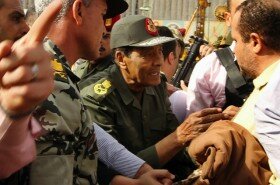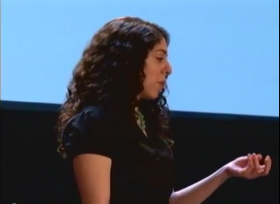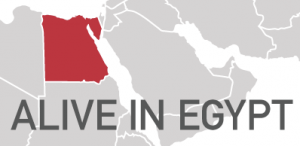
Reuters reports:
Egypt will start parliamentary elections on November 21, Al Arabiya Television and the Al-Ahram newspaper reported on Saturday, the country’s first vote since a popular uprising toppled President Hosni Mubarak in February after 30 years of autocratic rule.
Al-Ahram quoted Egypt’s election commission head, Abdel Moez Ibrahim, as saying voting for the lower house, the People’s Assembly, will be held in three stages starting on November 21 and ending on January 3. Voting for the upper house, the Shura Council, will begin on January 22, 2012 and finish on March 4.
These dates aren’t confirmed, they’re only leaks to regional media outlets. A spokesmen for the military says only that the official dates will be announced on September 26.
The legitimacy of these polls, with history as a guide, are to be rightfully questioned. Reuters reports that some efforts are being made to ensure a free and fair election:
The [Supreme Council of the Armed Forces] has said the judiciary will oversee the vote to ensure a free and fair poll. A member of the council said in July the election will be held in three stages to make it easier for monitors to oversee voting.
One question is the role that international media and election monitoring organizations will play in the transition to credible democracy. Although Egypt’s revolution was successful in overthrowing the Mubarak regime, Egyptians still live under a military government accustomed to total domination of society, including within the judiciary offered as one of the primary election monitors.
In July, the military announced that there would be no foreign observers allowed to monitor the upcoming elections, citing the need to protect Egypt’s sovereignty. During Egypt’s last elections (under the Mubarak regime), fraud and election improprieties were widespread and well-documented by organizations such as DISC. For example:
Another report submitted on December 5, 2010 was even more specific: “Buying out votes in Al Manshiaya Province as following: 7:30[am] price of voter was 100 pound […]. At 12[pm] the price of voter was 250 pound, at 3 pm the price was 200 pound, at 5 pm the price was 300 pound for half an hour, and at 6 pm the price was 30 pound.” Another report revealed “bribe-fixing” by noting that votes ranged from 100-150 Pounds as a result of a “coalition between delegates to reduce the price in Ghirbal, Alexandria.” [...]
Additional incidents mapped on the Ushahidi platform included reports of deliberate power cuts to prevent people from voting. As a result, one voter complained in “Al Saaida Zaniab election center: we could not find my name in voters lists, despite I voted in the same committee. Nobody helped to find my name on list because the electricity cut out.” [...]
Reports also documented harassment and violence by thugs, often against Muslim Brotherhood candidates, the use of Quran verses in election speeches and the use of mini buses at polling centers to bus in people from the National Party. [...]
As thoroughly and specifically as these incidents are documented, their validity may still be questioned due to the fact that they come singularly from Egyptian activists. Activists are burdened with incentives and interests that might tarnish the quality of their reporting. International monitoring organizations (such as the Carter Center or Democracy International) have their own disadvantages, such as questionable funding sources, motivations, and lack of local context. But when local and international monitors are used in tandem, incident reports can more easily be verified, and the credibility of the entire observation mission increases.

On April 8th, 2011 I had the opportunity to give a TEDx Talk as part of TEDxUofM at the historic Michigan Theater in front of a 1700 member audience. I was very lucky to be able to speak as a part of such an inspiring group of people, and that I had the chance to share my story.
Donia Jarrar is one of the many volunteer translators who worked with us during the early days of the Arab Spring. In this video she shares her personal story of how she came to Egypt, how she became involved in translating Speak2Tweet messages, and eventually, how she partnered with Small World News’ Alive in Egypt project.
Donia’s story is very important to us at Small World News, not only as a display of the motivation and dedication of our translation team, but because her experience exposes one of the many ways citizen journalists “self-select.” That is, how the daily lives and experiences of people all over the world lead them to telling stories, their own as well as their fellow citizens.
Why you choose to report is often just as important as what you choose to report. Donia’s personal history, from her family’s upheaval at the age of 4 to her life as an Arab student in the United States, culminated perfectly in a special drive to make the voices of Egypt’s revolution heard – across media and across borders.
Donia’s experience stands as a powerful example of the unique experiences – both extraordinary and ordinary – that lead one to creating and sharing citizen media with the world.
For more stories from the Egyptian revolution, visit Alive in Egypt



Alive In Egypt was created after Google and Twitter introduced the @speak2tweet dial-to-tweet service. Both companies wanted to see these phone conversations translated into English (most were in Arabic) and asked three outside organizations for assistance. These organizations, Small World News, Yamli and Meedan, assembled a core team who’s mission was to bring the voices of Egyptians directly to those who could not understand Arabic.
Bold missions and goals with world-changing implications tend to bring together phenomenal people and Alive In Egypt was no exception. Over 200 people from around the world translated tweets into four languages. A core team of ten, have been holding this together with Sisyphian dedication. Many long nights and hard work have created something that allows the words of many to a be read by a world hungry for the real story.
People yearn to hear each other’s stories and times of crisis require deeper, meaningful connections. This work has made the world smaller and richer. We hope that we have helped in some small way to make the world better.
For a work of this magnitude, the tools were conversely very simple. We could have done things differently, but our success is directly attributable to the simplicity and openness of our technology choices. There are four tools we use behind the scenes:
Our process is equally simple…
This process sets the tone for the whole endeavor. With a straightforward, analytical approach we are not tempted to editorialize. We simply work through the list and post things as they are completed. If some event happens where there is immediate use of the content (i.e. someone is released from prison, a major speech) then we skip ahead to the relevant story, but that is the extent of our curation.
Put simply, the tools get out of the way of their users. Alive In Egypt has people inside, not technology. Great things are enabled by the tools, but they are not the reason we are here.
The reason Alive In Egypt has succeeded so well is because we think about the content and the connections before we worry about the technological implementation details. As great as the tools are, our technology’s failures help us get more connected to one another as a team and to solve problems more quickly and in different ways.
Our manual process engenders more intimate contact between the content creators and our volunteers. There have been a few times where someone would call in or tweet about the work we are doing. A volunteer would inevitably chime in on the chat room about it to let everyone know. This two-way connection helps make our mission more “real” and facilitates a deep dedication to the work at hand.
We have been fortunate to have the backing of Google and Twitter through this whole endeavor. When our spreadsheet had troubles in the middle of the night on a Saturday, Google responded quickly and told us that we had hit a bug that they hadn’t known about.
Our efforts tend to fall down because our process is quite slow and erratic. Early on we got very bogged down with bad translations, too many incoming tweets and not enough people to post them to the site. We have never formalized a duty schedule for any of our volunteers. We got through those times by being vigilant. We have talked about, and worked on, automating things to some degree, but have never put any of that into practice. We have been better off leaving the manual process in place.
We want to continue to explore these deep connections we’re making with one another and the larger world. We want to see what happens when we empower people even more than @speak2tweet did by giving them a more complete media toolbox to use. We have a lot of questions:
I could go on, but these are deep and meaningful questions that we have seen some evidence of the answers to in the past two weeks. Time will tell if what we’ve observed is just in response to an event or is a sustained wave of change sweeping through the way in which we view one another and our stories. This is the great victory of an endeavor that has only been alive for two weeks, but has the potential to help countless people connect with one another in new ways.
For the last twelve days I’ve been just like everyone else on the internet, glued to the news unfolding in Egypt. The entire Small World News team has been asking each other just what we might be able to do to help the people of Egypt. A few phone calls and constant Skype chatter lead to a lot of good possibilities, but nothing concrete enough to take action on. Until last Sunday, when Brian really came up with something great after seeing the new blog post from Google about their Speak2Tweet service.
Speak2Tweet is a really simple service that allowed anyone in Egypt to call a phone number via the still functional phone system and record a voicemail that would then be posted to the SayNow service as an mp3. This went around the internet being shut down in Egypt and provided a channel to allow Egyptians to call and hear other messages as well as allow people outside of Egypt to hear directly from Egyptians cut off from the internet.
Brian just wanted to add a simple layer of transcribing and translation to this, so that non arabic speakers could hear from the callers and also so we could give a platform to the callers and highlight some of the more useful information coming out of Egypt. We reached out on Twitter and Facebook about the idea and the reaction has been huge. After a few hours we had a impressive team of volunteers, a shared spreadsheet that was actively filling up with translations, and Alive in Egypt was up and running.
Over 50 people have volunteered their time to help with different aspects of the site. From working on the technology behind it, to working on the actual transcripts and translations of the phone calls. Over 700 messages have been transcribed and translated since we’ve begun. On the transcribing and translation side of things I’d like to publicly thank @Arabzy @joshmull @BadrGirl @habibh @emanhaly who have all worked tirelessly in one way or another to translate messages, organize our 50+ volunteers, spread the message about the project, and support everyone along the whole way. It’s been inspiring watching you all come together so closely so quickly.
On the tech side of things, I’d like to thank Kevin Hart, long time Small World News contributor, who has setup and continued to develop another great platform for us in record time. Working right along side him as been Aaron Huslage (@huslage) who has been volunteering his services and has really come through on helping speed up a lot of the development work with Kevin. He’s looking for work too, so if you need a good developer, I’ll give you my personal recommendation. And don’t think they’re done yet, the site is going to continue to grow over the next few days and weeks.
For those interested in the raw data, today, just eight days later we’re on track to break 200,000 pageviews and 60,000 unique visitors. Not bad for a site that didn’t even exist 10 days ago. An interesting point to me is the amount of time on the site, which has gone up from a low of just above 2 minutes last Wednesday to a high of over 3 minutes today.
We’ve got a lot of work left to do, but it’s been really amazing working on all of this with everyone. We have some ideas to go forward from here, but we need a little more time before we make any of that public. Keep an eye on Alive in Egypt, this team is going to surprise you.
Small World News is working to create a volunteer team to translate arabic voicemails and share them publicly.
Please @ or DM or @joshmull to assist. We are coordinating via skype and will share the content via our blog and on twitter from the account.
You can access the public spreadsheet of translations and start helping directly here: http://bit.ly/fmRTiq
Please comment with questions or suggestions!